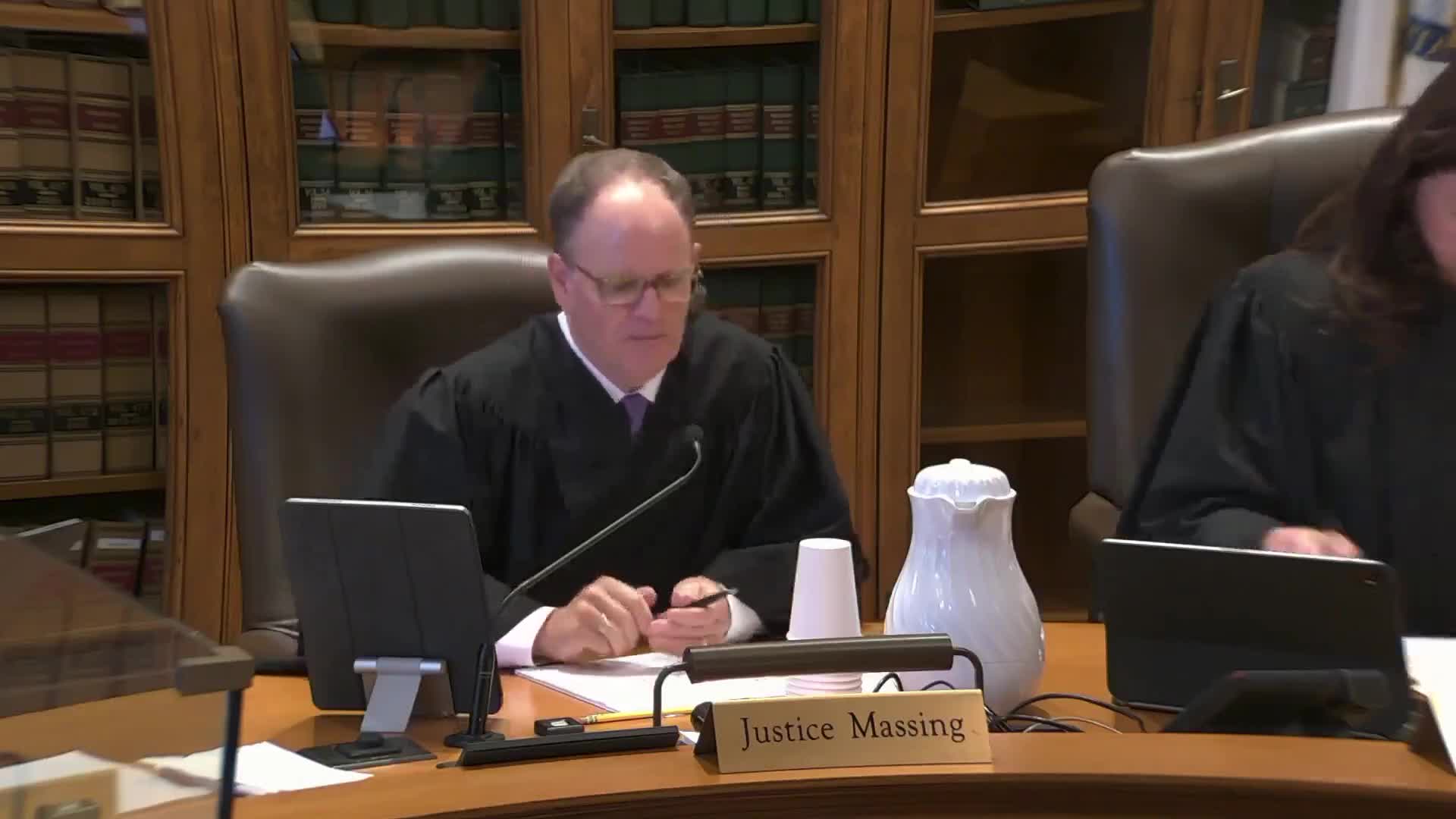Defense urges appeals court to reverse Rodriguez conviction, citing decades-old victim memory and lack of corroboration
October 04, 2025 | Judicial - Appeals Court Oral Arguments, Judicial, Massachusetts
This article was created by AI summarizing key points discussed. AI makes mistakes, so for full details and context, please refer to the video of the full meeting. Please report any errors so we can fix them. Report an error »

The Massachusetts Appeals Court heard argument Oct. 3 in Commonwealth v. Ramon Rodriguez, an appeal asking the court to reverse a conviction for indecent assault and battery on a child. Attorney Benyon, representing Ramon Rodriguez, told the three-judge panel the conviction rests on a single, decades-old eyewitness account and lacks corroboration.
Benyon said the evidence fails the Jackson v. Virginia sufficiency test and urged the court to remand because of due-process concerns. "The only case that helps the defendant in a criminal case in this country is the high standard of proof," Benyon told the panel, arguing the judge improperly credited the victim's memory despite long delay and inconsistent reactions from family members.
The Commonwealth, represented by Elizabeth Simonian, told the court controlling Massachusetts precedent requires no corroboration where the victim testifies to facts that establish each element of the offense. "Commonwealth v. Santos stands for the proposition that a victim's testimony alone is legally sufficient to convict," Simonian said, adding the government also presented other evidence at trial, including the victim's mother and a research psychologist.
The defense highlighted three data points it said undercut the reliability of the victim's statements: the decades-long lapse between the alleged events and the report to police; the fact that disclosure was not immediately believed by the victim's mother; and that key occupants of the third-party residence where the events allegedly occurred were not called to testify. Benyon argued those facts, even viewed alongside the victim's testimony, could not sustain proof beyond a reasonable doubt "without piling inference upon inference."
The panel asked whether the issue on appeal was legal error or simply a factual disagreement with the trial judge's credibility determinations. Benyon said the claim is legal: if the evidence does not meet the constitutional standard of proof beyond a reasonable doubt, that failure itself is a reviewable error. Simonian responded that the court must view evidence in the light most favorable to the Commonwealth and that the jury (or judge in a bench trial) implicitly credited the Commonwealth's witnesses when it returned a guilty verdict.
No decision was issued at argument; the case was submitted to the court. The transcript shows the justices pressed both sides on the standard of review and on whether the delay and family reactions were properly characterized as substantive evidence of fabrication or simply matters of credibility for the factfinder.
What happened next: The appeals court took the case under submission after oral argument; no opinion was announced at the hearing.
Why it matters: The appeal raises the recurring appellate question whether decades-long delays in reporting and single-witness testimony can constitutionally sustain a conviction, and asks the court to reconcile Massachusetts precedent on victim testimony with concerns about memory and delayed disclosure.
Benyon said the evidence fails the Jackson v. Virginia sufficiency test and urged the court to remand because of due-process concerns. "The only case that helps the defendant in a criminal case in this country is the high standard of proof," Benyon told the panel, arguing the judge improperly credited the victim's memory despite long delay and inconsistent reactions from family members.
The Commonwealth, represented by Elizabeth Simonian, told the court controlling Massachusetts precedent requires no corroboration where the victim testifies to facts that establish each element of the offense. "Commonwealth v. Santos stands for the proposition that a victim's testimony alone is legally sufficient to convict," Simonian said, adding the government also presented other evidence at trial, including the victim's mother and a research psychologist.
The defense highlighted three data points it said undercut the reliability of the victim's statements: the decades-long lapse between the alleged events and the report to police; the fact that disclosure was not immediately believed by the victim's mother; and that key occupants of the third-party residence where the events allegedly occurred were not called to testify. Benyon argued those facts, even viewed alongside the victim's testimony, could not sustain proof beyond a reasonable doubt "without piling inference upon inference."
The panel asked whether the issue on appeal was legal error or simply a factual disagreement with the trial judge's credibility determinations. Benyon said the claim is legal: if the evidence does not meet the constitutional standard of proof beyond a reasonable doubt, that failure itself is a reviewable error. Simonian responded that the court must view evidence in the light most favorable to the Commonwealth and that the jury (or judge in a bench trial) implicitly credited the Commonwealth's witnesses when it returned a guilty verdict.
No decision was issued at argument; the case was submitted to the court. The transcript shows the justices pressed both sides on the standard of review and on whether the delay and family reactions were properly characterized as substantive evidence of fabrication or simply matters of credibility for the factfinder.
What happened next: The appeals court took the case under submission after oral argument; no opinion was announced at the hearing.
Why it matters: The appeal raises the recurring appellate question whether decades-long delays in reporting and single-witness testimony can constitutionally sustain a conviction, and asks the court to reconcile Massachusetts precedent on victim testimony with concerns about memory and delayed disclosure.
View full meeting
This article is based on a recent meeting—watch the full video and explore the complete transcript for deeper insights into the discussion.
View full meeting
